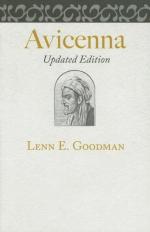|
This section contains 3,344 words (approx. 12 pages at 300 words per page) |

|
Avicenna, whose full name was Abū ʿAlī al-Ḥusayn ibn ʿAbd-Allāh ibn Sīnā, was the most renowned and influential philosopher of medieval Islam. He was a Persian, born near Bukhara, then the capital of the Persian Samānid dynasty. His father was a partisan of the heterodox Ismāʿīlī sect, whose theology drew on current popularized Neoplatonism. As a boy, Avicenna was exposed to Ismāʿīlī doctrine but found it intellectually lacking. He received some of the basic Islamic religious education, then studied logic, mathematics, the natural sciences, philosophy, and medicine, mastering these subjects by the age of eighteen. A certain al-Nātilī introduced him to logic, geometry, and astronomy, but Avicenna was largely self-taught. He records that he was able to fathom Aristotle's Metaphysics only after a chance discovery of a commentary on it by al-Fārābī (Alfarabi). Appointed physician at the...
|
This section contains 3,344 words (approx. 12 pages at 300 words per page) |

|


